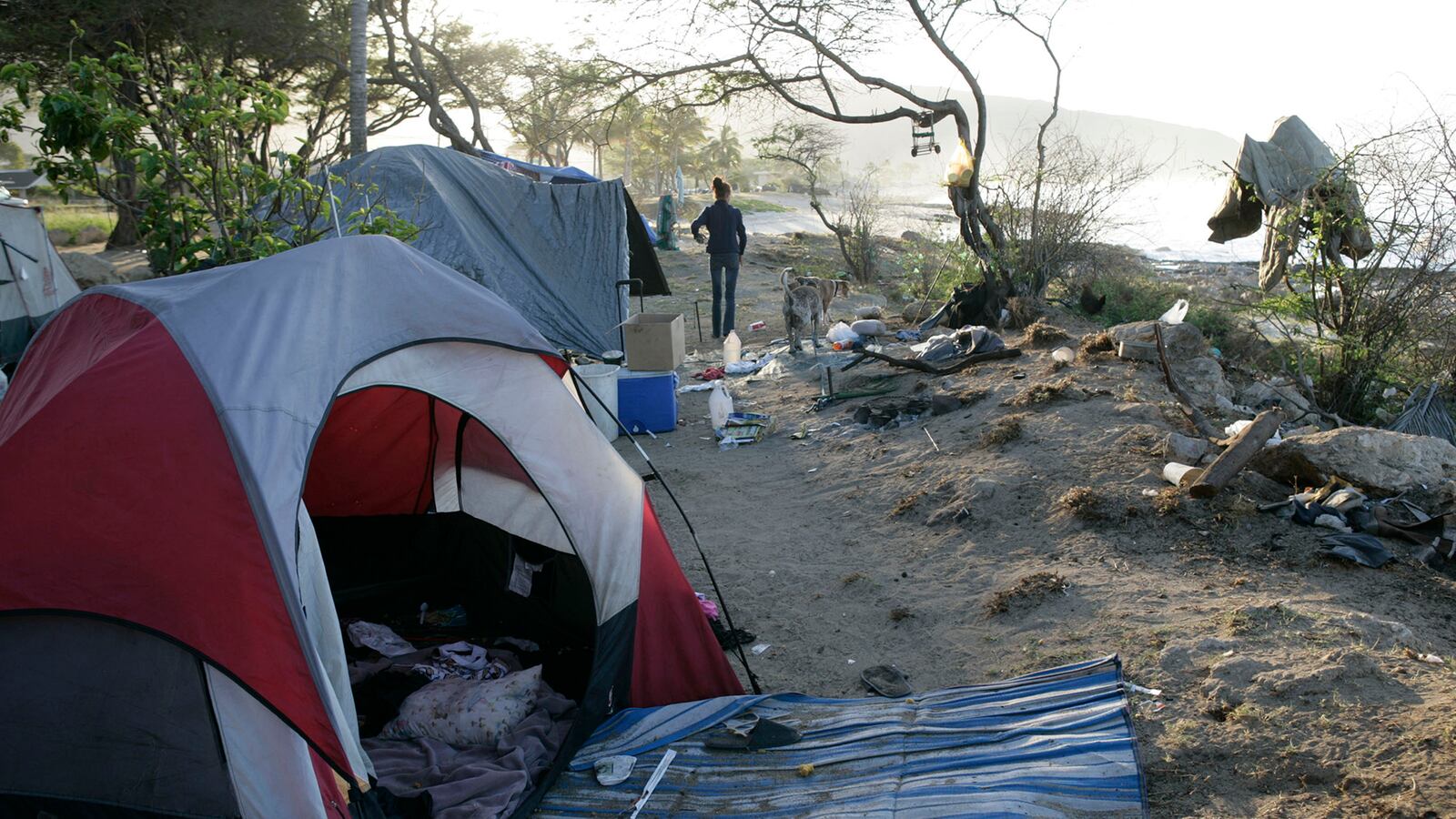Hawaii: Combating Homelessness With One-Way Tickets to the Mainland
Hawaii has a serious homelessness problem--so now it wants to pass that problem off to the rest of the country. Having reached the highest rate of homelessness in the U.S., lawmakers in paradise have decided to try a new tactic for getting people off the streets: flying them to the mainland. Yes, instead of setting aside money for more shelters or outreach programs, Hawaii’s state legislature has approved a $100,000 fund to offer about 17,000 homeless people one-way tickets off the islands. The “return to home” program is idealistically billed as a way to help people stuck on the island reach family or job opportunities. The program may be labeled “voluntary,” but as in other cities with similar programs, like New York and San Francisco, homeless people who get arrested could wind up faced with the option of jail or the one-way flight, regardless of whether that person has better opportunities elsewhere. Also, there are very few requirements to qualify for the program, so ostensibly non-homeless people from other states could game the system by flying to Hawaii and “volunteering” for a free ride home.

North Carolina: Why Read a Whole Voter-Suppression Bill Before Signing It?
When a governor signs into law a bill that will drastically suppress voting rights in his state, one would hope that he has thoroughly read the bill and knows what he’s doing. So it’s a bit disconcerting to find out that, ahead of signing a bill that would require identification at the polls, prohibit 17-year-olds from registering to vote ahead of their 18th birthdays, eliminate same-day registration, and cut down on early voting, and put in place several other restrictions, North Carolina Gov. Pat McCrory admitted to not being well versed in all of the bill’s provisions. When a reporter asked McCrory about the limits the bill would place on allowing new voters to register, McCrory admitted, “I don’t know enough. I’m sorry. I haven’t read that portion of the bill,” and went on to dodge further questions about its other restrictions.
Arkansas: Teachers Will Now Wield Weapons at School
Clarksville High School in Arkansas is planning to turn its teachers, administrators, and other staff into armed guards, having them go through 53 hours of training to carry concealed weapons at school throughout the day. Clarksville is heeding the recommendation of the NRA to arm school staff following last year’s shooting in Newtown, Connecticut. “The plan we’ve been given in the past is, ‘Well, lock your doors, turn off your lights, and hope for the best,’” said Superintendent David Hopkins, explaining that the school district decided that was not a sufficient plan. Though no state officials are making any effort to kill the initiative, not everyone thinks it's a genius idea. The state’s education commissioner doesn’t believe armed teachers are a sufficient substitute for professional law enforcement. Donna Morey, the former president of the Arkansas Education Association, more bluntly called the initiative “awful.” “We just think educators should be in the business of educating students, not carrying a weapon,” she said.
Texas: San Antonio’s Religious Leaders Say Banning Anti-Gay Discrimination Is Discriminatory
Christian leaders in San Antonio are up in arms over the state’s proposal to ban discrimination against gays, lesbians, transgender people, and veterans in the workplace. Part of the ordinance also blocks anyone who has exhibited bias or acted discriminatorily against a member of one of these protected groups. Those freaking out about the ordinance, such as the Family Research Council and pastors from a number of churches around the city, believe it effectively bans from the City Council Christians who are morally opposed to homosexuality and, potentially, from doing business with the city in general. “If it’s passed, any person who has either expressed any belief in favor of traditional marriage or in terms of Judeo-Christian morality regarding sexuality in general, verbally or in writing, could be barred from participating in public life on that City Council,” the Family Research Council’s Ken Klukowski told Fox News, calling the proposal, “a shameful form of anti-clergy bias.” Steve Branson, the pastor at a local Baptist church echoed Klukowski’s concerns. “If it passes and you attend a church that opposes gay marriage, you could be disqualified from getting a city job,” he said. “I would be disqualified from running for office. My church members couldn’t run for office if they held the same views I do.” Not all the ordinance’s opponents are religious leaders. The conservative Washington Times published an editorial calling the City Council “bigots” and Councilwoman Ivy Taylor told the local television news station that she was concerned the new rules would “legislate moral or religious convictions.”





